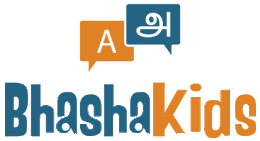
“The limits of my language means the limits of my world.” Ludwig Wittgenstein, philosopher
World Multilingualism Day also known as the International Day of Multilingualism is now celebrated annually on March 28th. Wait, that’s a thing? Well, yes it is, but don’t worry, you aren’t behind the times. It’s new, started in 2019, just 2 years ago, by Dr. Thomas H. Bak and a group of enthusiastic polyglots. Dr. Thomas Bak is a cognitive neuroscientist who studies the impacts of language learning, in particular bilingualism and multilingualism, on the brain and its impacts on aging. They chose March 27th because this is the date engraved on the Rosetta Stone.
Did you know that more than half the world’s population speaks more than one language? If you drill down into the numbers, knowing the population of India and China make up a sizable majority of that population, and that many Indians and Chinese speak more than one language, you can see that fact as true. This group of linguists sought to promote World Multilingualism Day with the hashtag #multilingualisnormal.
I would like to propose something a bit different. Something that has been bugging me for a few months so hear me out. I’m willing to hear alternate sides of the debate, but here it goes. I would like to suggest the hashtag #normalizemultilingualism because I think we need to make that an ACTION. The fact is, here in the US, it is not the norm to speak another language besides English, and yes, there has been linguistic violence and oppression in this country dating back to its inception. You may know what I’m talking about -- “We speak English in America! Go back to your country!”
I would also ask this question - Does the term “Bilingualism” have racist origins? Is it a “1st World” construct? The way "Bilingualism" is used today assumes that English is the norm and that any different language is the “Other”. Have you heard the term bilingual used in any other context? I would propose that us Americans even out the playing field and realize - the rest of the world doesn’t even operate with the term “bilingualism”. Because in the rest of the world, #multilingualisnormal.
I had an interesting conversation with my kids’ Spanish teacher the other day. She shared how she once worked at an NGO and was appointed as the “Bilingual program coordinator”. She ended up getting posted in Europe for a bit. When her colleagues heard her title, they all had a good guffaw. “Bilingual? Are you mad? Many people here speak more than English and Spanish.”
I know many Indian immigrants who speak Hindi, English, + another language. Yet for some reason, they are not recognized as nor do they recognize themselves as true multilinguals. It's time you put that crown on your head. Being multilingual, being a polyglot, is a true achievement. It changes the way you think and interact with those around you. It widens your worldview.
Some are afraid to teach their kids their own language - lest their English skills suffer, or because they don’t want their kids to feel left out or different from their English speaking, American peers. This was especially true for those of us who grew up in the 70s and 80s to newly immigrated parents. There is a lost generation of people of Indian descent who look Indian, dress Indian, eat/cook Indian foods - but can’t speak more than a primary school level of their mother tongue, let alone read or write it. For parents who are worried that speaking your mother tongue at home will impact your kids’ ability to learn English - don’t worry! You learned in more than one language, and so can they! Science shows that the most amazing brains with the best capacity to learn is that of children. If you are worried they will feel isolated from their American peers, I’m sorry to tell you the blunt truth. They already are. I’ve said this before and I’ll say it again - for those of us living in the hyphen “Indian-American” - you are simultaneously BOTH and neither.
For the lost generation, there is still time to learn. You can learn along with your child. There are so many great resources out there. One reason I created BhashaKids was I saw the lack of tools available in Indian languages. Here is a link to an article on how multilingualism promotes cognitive development.
Put your crown on. Claim the mantle of #multilingual and #polyglot. Let’s keep discussing and exploring the inherent bias in the linguistic world. Let’s all support each other to pass on our languages to our kids. Let’s #normalizemultilingualism
Check out our bilingual language collections for children: bilingual books, vocabulary sets, and worksheets.



Leave a comment